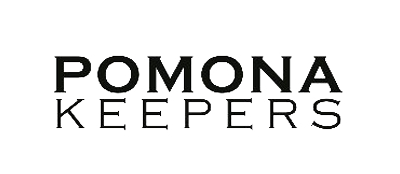The executive director of the North American Olive Oil Association (NAOOA) will be one of the keynote speakers at the Cycle of Conferences that will take place during the World Olive Oil Exhibition which will be held in Madrid on the 18th and 19th of March.
Coming from a family saga devoted to olive for many decades, Joseph R. Profaci has been the executive director of the North American Olive Oil Association (NAOOA) for three years. Particularly, this Association gathers major companies that are present in the U.S. market, including those from Spain. Mr. Profaci is a leading advocate for olive oil in the United States and he will address the conference: “Why has olive oil consumption in the United States stagnated?” taking place within the World Olive Oil Exhibition, which will be held in Madrid on the 18th and 19th of March.
– Given your extensive experience in the olive oil sector in the United States, how do you see the current situation?
I am troubled that the U.S. market continues to be stagnant when it comes to consumption; in fact, recent data has shown that the number of households that purchase olive oil in the U.S. has actually declined in the past 12 months.
– How do you think the tariff rate imposed by Trump is going to affect the Spanish companies?
There can be no doubt that the tariffs will have a negative impact on the profitability of Spanish companies and farmers in the near term. Olive oil is a price sensitive product, and an increase in prices will result in a decrease in sales, no doubt. As the dominant market leader, I am also very concerned that the Spanish olive oil producers will shift their focus on growing sales in other markets, and that this will be to the long term detriment of the U.S. and American consumers who have come to love and appreciate Spanish olive oils. We have already seen a big increase in shipments from Spain to Asia at the end of last year.
– What is the strategy Spain should take? Where should we head towards?
Dealing with trade inequities is a major focus of the Trump Administration. In my opinion, Spain should continue to cultivate the strong relationship it has with the United States. To the extent the Spanish government can identify areas of common interest between the Spanish agricultural sector and the U.S., and then seek to promote discussions between the E.U. and the U.S. on those issues, Spain would be well positioned for more favorable tariff treatment.
– A few days ago, the olive growers mobilized themselves as a way of protesting against the severe price crisis in origin that the sector has witnessed over the past couple of years. How do you think this issue should be dealt with?
I am not sufficiently informed of all the factors that are contributing to the pricing crisis within Spain, but from a macro-economic point of view, I feel that growing consumption in critical markets like the U.S. can help reverse the negative pricing trends.
– Agricultural associations attribute the crisis to the fact that a part of the subsidies from Europe and the Spanish Government have been reduced, whereas the production is constantly growing. How can all of this be tackled? Are the subsidies necessary to continue being cost-effective?
I am not qualified to say whether the reduction of subsidies has contributed to the situation, but I can tell you that increasing subsidies, particularly in the current trade climate could adversely impact relations with the U.S. government. Although there has been a reduction in subsidies over the past two decades, and no subsidies at all on orchards planted in the last 15 years, the U.S. domestic industry continues to complain of an uneven playing field.
– Why do you think the consumption has stagnated in producing countries such as Spain or Italy? What can be done to reinvigorate it?
In the U.S., consumption has stagnated as a result of a loss of confidence in the category in terms of quality and trustworthiness. We are doing all we can to reverse that in the U.S., but I don’t know to what extent the same may be true in Europe. In addition, as I understand is true in the E.U. as well as in the U.S., to the extent consumers are cooking at home less, there will be a drop in consumption of all cooking oils. But as long as people continue to eat cooked food, cooking oil will remain a necessity. It becomes imperative then that we position olive oil as healthier both for people and for the planet than competitive oils.
– Since becoming executive director of the NAOOA, what has been your goal?
I have had one overarching goal since taking the reins at NAOOA in 2017 —and that is to grow consumption in the U.S. There are numerous ways we have pursued that objective, including efforts to unite a fragmented industry through dialog focused on common interests. From a policy standpoint, these efforts have emphasized the need for a U.S. uniform standard of identity for olive oil, and the establishment of an inter-professional board to better inform and educate consumers about olive oil. With funding from such a board, we in the U.S. will be better positioned to better educate consumers about olive oil, which has a story as rich as any other food in terms of authenticity, tradition, ritual, diversity of flavors, culinary versatility, health benefits and sustainability.

![logo-wooe[2] logo-wooe[2]](https://oliveoilexhibition.com/wp-content/uploads/2021/06/logo-wooe2.png)
